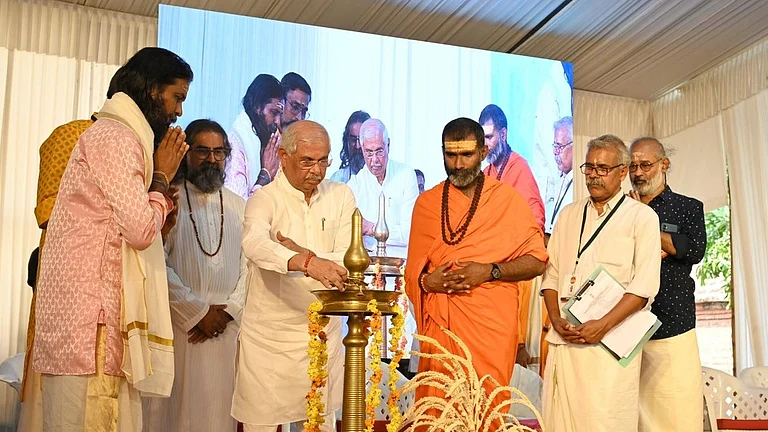Kisan Mela, or the farmers' fair, is a significant event aimed at promoting advanced agricultural practices and sustainable farming techniques. Held annually across various regions of India, these fairs are a platform for farmers, students, and professionals to exchange knowledge, learn about new technologies, and adopt better farming methods. The recent Kisan Mela in Ludhiana, Punjab, organized by the Punjab Agricultural University (PAU), was a prime example of how such events can drive meaningful change in agriculture.
These events are particularly helpful for farmers as they provide hands-on demonstrations, expert talks, and exhibits showcasing the latest innovations in crop management, water conservation, and sustainable farming. Kisan Mela plays a crucial role in informing farmers about ways to increase productivity while preserving natural resources like soil and water. Through the medium of interactive displays, games, and stalls, all the attendees get a chance to broaden their knowledge of crop residue management which can contribute to improved soil health and reduce pollution. Nonetheless, these fairs foster community engagement and help farmers create a network to share their experiences and challenges.
This year, Ludhiana’s Kisan Mela brought into light one of the significant changes in the agricultural processes and that was encouraging women farmers for crop residue management. The fair witnessed thousands of farmers, students, and other farming professionals interested in advanced agricultural practices.
One of the highlights of the fair was an informational stand promoting PRANA, an initiative of The Nature Conservancy (TNC) implemented in partnership with Nature Conservancy India Solutions Pvt. Ltd. The messages in the stall were focused on celebrating women’s voices since they are essential in the promotion of regenerative agriculture practices.
The PRANA stall had engaging elements such as games, murals, and banners on regenerative agriculture and Crop Residue Management (CRM). These gender-inclusive displays encouraged participation from both male and female farmers, offering key insights into best practices for sustainable farming.
Sudipta Chatterjee, Director of Programs at NCIS, emphasized the importance of crop residue management “Crop residue contains essential nutrients that can improve soil health. PRANA promotes in-situ CRM practices that contribute to healthier soil and air while nourishing our natural resources."
Other engaging activities like ‘Kheti de Sahi Dhang’ (Right Ways of Farming) at the stall facilitated learning about crop residue management for farmers beyond Lalgutwa. Such fun-filled activities explained that following sustainable principles could help improve the fertility of soil, the availability of water, and the general well-being of Punjab.
Kulwinder Kaur, a visiting farmer, shared her experience - "Through the game, we learned that soil is like gold. If we protect it, we can reduce our agricultural input costs and avoid the harmful effects of smoke and pollution."
The stall also displayed literature materials on water conservation techniques and methods of improving soil fertility. An Agri-calendar, designed to help farmers understand the benefits of Crop Residue Management for soil and water, was particularly popular among attendees.
Farmers like Malwinderpal Singh from Faridkot appreciated the PRANA team for their efforts in demystifying misconceptions about crop residues and enlightening society about the adverse impacts of crop burning. He pointed out that they were generally more environmentally conscious in their strategies such as water table protection and on-farm residue utilization.

Many of the exhibits at the PRANA stall were creative and the team interacted with more than 3000 farmers who were keen to know about the sustainable practices in agriculture. As of now PRANA project is active in 18 districts of Punjab for no-till- and regenerative agriculture that has positive impacts on the soil structure and soil carbon figures.
The Ludhiana Kisan Mela not only served as a platform for sharing innovative agricultural practices but also emphasized the pivotal role women play in promoting sustainable farming. By highlighting crop residue management through the PRANA initiative, the event successfully showcased the importance of women's voices in driving regenerative agriculture.
As farming communities face increasing challenges from climate change and environmental degradation, it is essential to adopt practices that not only improve productivity but also protect natural resources. The active participation of women in these efforts is a step towards building a more sustainable and inclusive agricultural future in Punjab. The Kisan Mela exemplifies the importance of mutual responsibility in making sure that there is a healthier, more productive ecosystem for everyone.



























